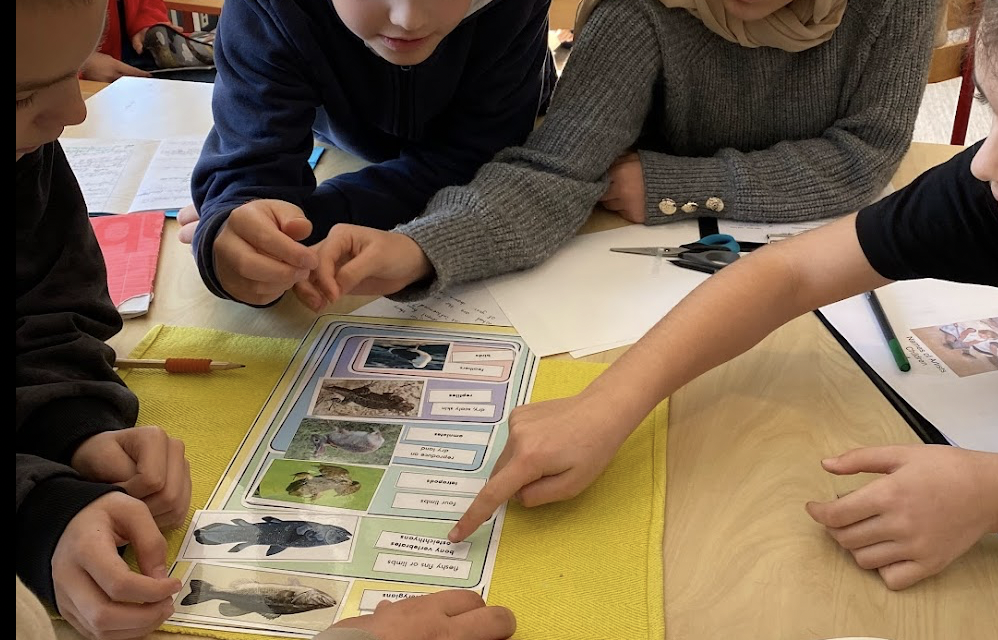🌟 The Role of Wonder and Curiosity in Montessori Education: Engaging the Hungry Mind
"Our aim is not merely to make the child understand, or still less to memorize, but so to touch the imagination and enthuse him to his innermost core." Carla Foster
THEORY
10/8/20244 min read


One of the most transformative aspects of Montessori education is how it nurtures a deep sense of wonder and curiosityin children. From an early age, children are naturally curious about the world around them. Montessori education embraces this curiosity, using it as a catalyst for exploration, discovery, and learning. In the classroom, children are encouraged to ask questions, engage in dialogue, and explore the mysteries of the world.
When children are inspired by their natural curiosity, they engage with learning on a much deeper level. It’s not enough to present facts or demand memorization. True learning happens when children’s imaginations are ignited, allowing them to connect with the material in a meaningful way.
📖 Storytelling: A Tool for Engaging Curiosity
One of the most effective ways to spark curiosity in children is through storytelling. Montessori classrooms are filled with stories that help children understand complex ideas and concepts. Whether it’s the Great Lessons that tell the story of the universe or the history of language, stories allow children to envision a world beyond their immediate experiences. They encourage children to wonder, to ask questions, and to seek answers.
"Storytelling is one of the oldest forms of cultural transmission. Oral storytelling, including drama, song, poetry, and demonstrations of techniques, is embedded as a learning strategy in the brain." Carla Foster p. 53 The NAMTA Journal • Vol. 41, No. 1 • Winter 2016
I’ve found that when I present lessons through storytelling, the children’s eyes light up with interest. They are not just passive recipients of information but active participants in the narrative. The stories create a bridge between the known and the unknown, inviting children to explore new ideas while grounding them in the familiar.
🌱 Wonder as a Pathway to Understanding
Wonder is not just about asking questions; it’s about creating an environment where children feel comfortable exploring the unknown. Montessori teachers are encouraged to engage children in conversations that go beyond surface-level answers. The goal is to encourage deep thinking, reflection, and dialogue.
"Wondering is about being frank about how small we are and how big the universe is. Our sense of wonder allows us to appreciate the extraordinary, the unique, and the surprising." Carla Foster p. 59 The NAMTA Journal • Vol. 41, No. 1 • Winter 2016
If you listen well , you will hear children asking profound questions that leads them to deeper understanding. A simple inquiry like “Why do we have seasons?” can spark an entire lesson on the Earth’s rotation, the tilt of its axis, and how this affects life on the planet. By fostering an environment where children’s questions are taken seriously, we allow them to develop the critical thinking skills that will serve them throughout their lives.
🎭 The Role of Dialogue and Discussion
Another essential element of Montessori education is the focus on dialogue and discussion. Instead of lecturing, Montessori teachers engage children in conversations that encourage them to think critically and express their ideas. This approach not only supports intellectual development but also builds social skills, confidence, and public speaking abilities.
"Wondering aloud together with others helps us manage anxiety. To be left alone with our questions about life, the universe, and everything can throw many children into catastrophic 'what if' scenarios. Wondering together arms us with the courage to face the unknown." Carla Foster p. 60 The NAMTA Journal • Vol. 41, No. 1 • Winter 2016
I often see children working together to solve problems, explain their reasoning, and build on each other’s ideas. These conversations are not only intellectually stimulating but also emotionally supportive. By wondering together, children learn that it’s okay not to have all the answers, but that they can work through their questions collaboratively.
🌍 The Power of Cosmic Questions
In the Montessori approach, Cosmic Education plays a crucial role in fostering a child’s sense of wonder about the universe. Through lessons on the formation of the Earth, the evolution of life, and the interdependence of ecosystems, children are encouraged to think about their place in the world and their role in shaping it.
"What is the creation? What is the scenery that we move about in? This is the world, the geography, the plants, and animals." Carla Foster p. 61 The NAMTA Journal • Vol. 41, No. 1 • Winter 2016
By presenting the big questions—about life, humanity, and the cosmos—Montessori education helps children develop a cosmic perspective. This encourages them to not only seek knowledge but also to appreciate the interconnectedness of all things and their own contributions to the world.
🌟 Fostering Lifelong Curiosity
Montessori education is not about simply imparting knowledge—it’s about nurturing a lifelong love of learning. By fostering wonder, curiosity, and dialogue, we give children the tools they need to explore the world with an open mind and a questioning spirit. Through stories, discussions, and a focus on Cosmic Education, children learn that their questions are valuable and that the pursuit of understanding is a lifelong journey.
Wondering is about the question mark. Is it true? Is it really true? Is it always true? If so, why? If not, why not?. We must create spaces where children feel safe to wonder, explore, and engage with the unknown. By doing so, we help them build the critical thinking skills and intellectual curiosity that will stay with them throughout their lives.
With Montessori Joy,
Vanina
Reference : The NAMTA Journal • Vol. 41, No. 1 • Winter 2016 Wondering Aloud by Carla Foster

